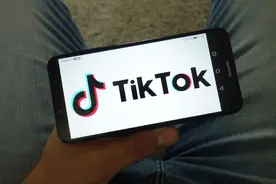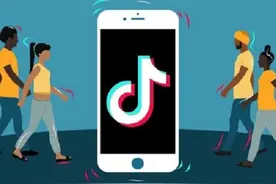For a long time, we have heard "buy" and "buy it!" voices on various online media.TikTok is also a popular online production machine, stimulating everyone who brushes videos: "You really need this! You should buy it!" Now, content creators and ordinary consumers on TikTok have changed direction in unison; Recently, when you open the software, all of a sudden, the homepage is filled with videos of various products urging you to quit.Tell you what not to buy.This is the trend of the recent craze - "de advertising", which can also be understood as "anti online red tape goods.".On TikTok, content producers who are the opposite of online red are referred to as "de influencers.".Anyone can become an influencer and tell people not to buy anything.Not to mention how long this trend can catch on, it seems that more and more people are participating in sending videos to "dissuade" some popular online products, from skin care products, makeup, to Apple earphones, and daily necessities.On social networks, the # deinfluencing topic tag has tens of millions of views and is increasingly discussed.In an era where everyone can become online red tape goods, anti online red tape goods are becoming popular on the internet.What impact will this have on overseas brands? How should a brand do marketing? Today, the editor will talk about how the wind of anti online red marketing has blown up? TikTok was the first to appear in the discussion of de financing.It was a TikToker Mikayla Nogueira, who has 14 million fans.In one of her videos with goods, netizens pointed out that she wore false eyelashes in the promotional video of L'Oreal eye black.The picture shows Mikayla Nogueira's beauty video released on Tik Tok.Subsequently, the controversial beauty online celebrity Jeffree Star and the beauty online celebrity Alissa Ashley all stood up and posted the video, indicating that Nogueira actually wore fake eyelashes in the delivery video.Recently, Nogueria has made a comeback from the "eyelash door" incident.She has not responded positively to the storm, but has caused people to ponder whether consumers should really believe the content displayed by social media celebrities.Since this incident, there has been a growing clamor for online celebrity products and online marketing, and the trend of public opinion has shifted to ordinary users who have started sharing their chicken ribs online celebrity products on Tik Tok over the years.De consultants, on the other hand, have also focused on some large brand products.At the end of January, TikTok's online celebrity Alyssa Kroelis also released a video with more than 4.3 million viewers.She listed some online celebrity products that she didn't need to buy or were overpriced in the video, and then listed some "replacements" that she believed were more effective than luxury brand products.For example, she recommended Amazon's $30 plastic curler over the popular Dyson Airwrap
-
Home
-
Product
SolutionsmanagementUnified management of multiple mobile phones and accounts
Marketing automationUse scripts instead of manual automation to run APP applications
Self-developed scriptJavascript can be used to develop all mobile terminal automation operations
SolutionsData monitoringMulti-dimensional monitoring account and peer online red data
analysis reportMulti-dimensional analysis report of data
-
About






Comment Cancel reply